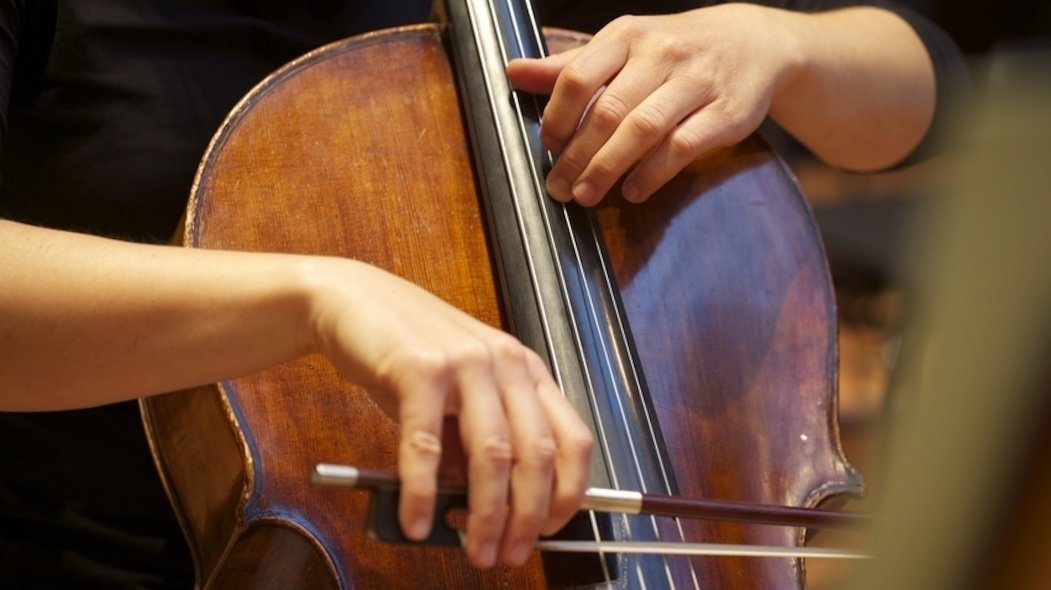Music studies
If you want to study music, you will find a wide range of programmes at music and art colleges, and in certain cases also at universities and teacher training colleges.

Overview of the academic discipline
The Music degree programme is divided into three areas: artistic, music education and historical-scientific degree programmes. The aim of the practical-artistic and pedagogical programmes is to prepare students for an artistic or music education career and to impart the necessary specialist knowledge, skills and methods. In contrast, musicology primarily covers the theoretical and historical aspects of music.
- The artistic degree programmes in instrumental music (solo, orchestral and chamber music) and the degree programmes in church music, singing (solo, choir) and conducting (choir and orchestra conducting) are primarily concerned with the development of practical music skills on the respective instrument, voice or conducting.
- The music education degree programmes not only teach musicological and practical music knowledge, but also socio-pedagogical expertise. This means that you gain both theoretical and practical knowledge. In addition to aural training or music history, methods and skills are taught on how to introduce children and adults to music.
- The historical-scientific area is divided into music history, systematic musicology and musical folklore and ethnology - such as ethnomusicology and world music.
- Training for the teaching profession at general education schools is also the responsibility of the universities. In addition, these universities, as well as music academies and conservatories, train teachers at music schools, and independent music teachers. Both state and church music colleges also offer A and B programmes in church music.
Which topics are included in the curriculum?
Depending on the degree programme, the following subjects are offered for practical and artistic music studies:
- Conducting, choral conducting: choral conducting, orchestral conducting, accompaniment for conductors, score playing, work analysis
- Singing: vocal didactics and methodology, breathing and movement technique, speech training, singing, university and chamber choir
- Instrumental music: string instruments, wind instruments, piano, harp, percussion, musical analysis, aural training, ensemble, music history, music theory
- Composition: instrumental composition, electronic composition, music theory, music history
In music education degree programmes, for example, these subjects are on the curriculum: Music theory, music pedagogy, wind class teaching, singing with children/choral pedagogy, musicology and sensory education.
The historical-scientific area teaches modules such as introduction to systematic musicology, music history and historical musicology, applied music theory, contemporary music, notation and source studies as well as composition and ear training.
Artistic aptitude related to the degree programme must be demonstrated in examinations. Above all, an educated singing and speaking voice, mastery of a main and secondary instrument, a good ear and knowledge of general music theory and harmony are expected. In the case of proof of outstanding artistic talent, proof of a higher education entrance qualification is not required - unless the course of study concludes with the first state examination for a teaching position.
Special regulations apply in individual cases for training to become an independent music teacher.
What are the requirements?
Good knowledge of the school subjects music, history and foreign languages is helpful for a degree programme in music.
What study programmes are there to choose from?
Bachelor's degree programmes with an artistic or pedagogical focus are generally offered at art and music colleges, and in some cases at teacher training colleges, while musicology degree programmes are offered at universities. Possible designations for the degree programmes are, for example: Early music, historical instruments, choral and ensemble conducting, singing, instrumental music (e.g. accordion, wind instruments, percussion, guitar, woodwind instruments, piano, string instruments), jazz, pop and world music, church music, composition, (opera) accompaniment, vocal pedagogy, music pedagogy, musicals, music, music theory and applied musicology.
What job opportunities are there after graduation?
Graduates of the degree programme can work in the fields of music, singing, composition, music education or editing, journalism and proofreading.
There are also employment opportunities in acting, dance, movement arts or theatre, film and television production.
Music teachers for general education schools can only find limited employment opportunities outside the teaching profession, e.g. in media companies or music publishers.
Highly talented and well-trained music graduates work as singers, musicians, conductors, choirmasters and bandleaders at opera houses, music theatres, state and private orchestras or as music teachers and private music teachers. Professional musicians are also needed for amateur music-making and light music.
